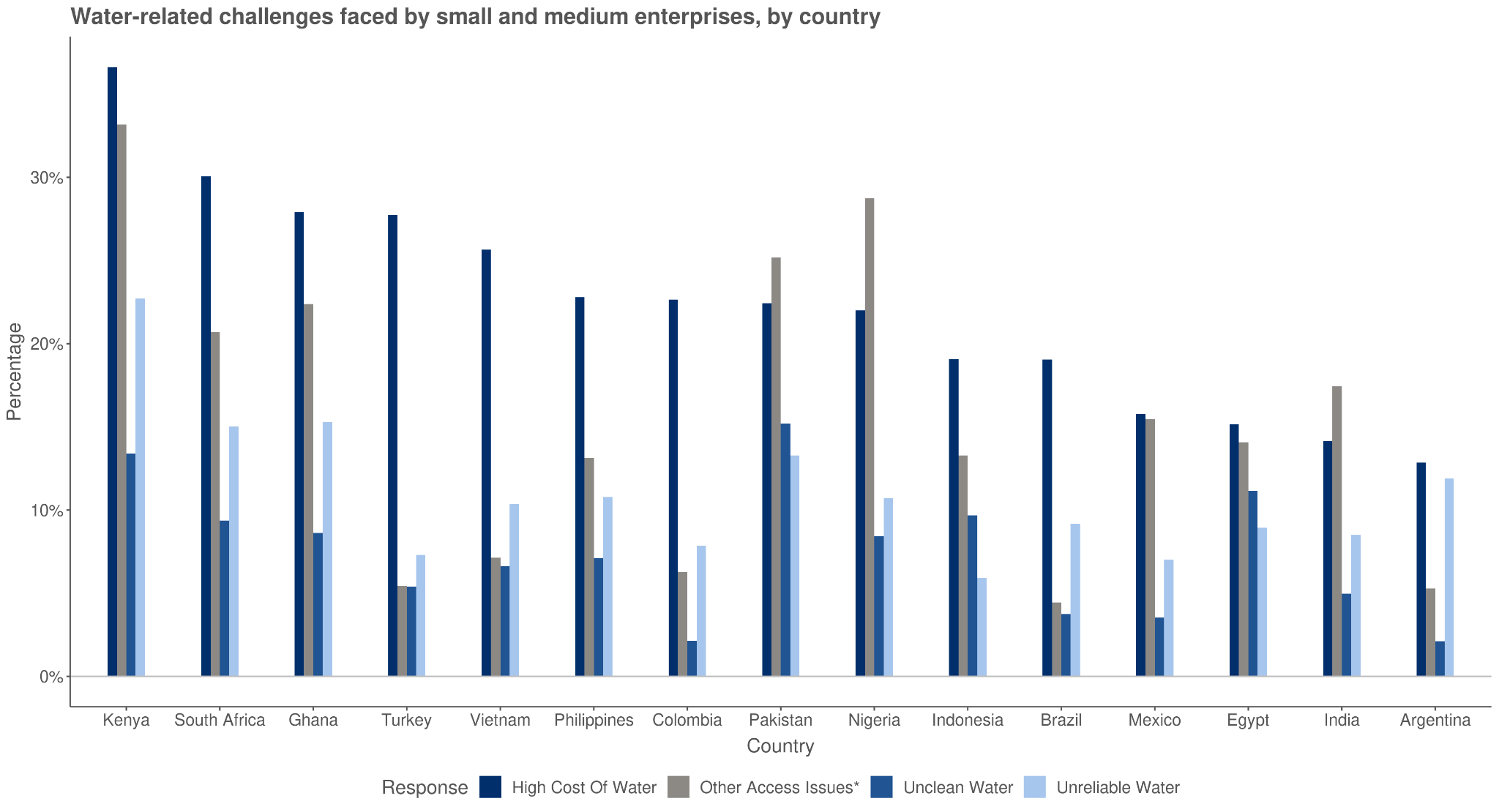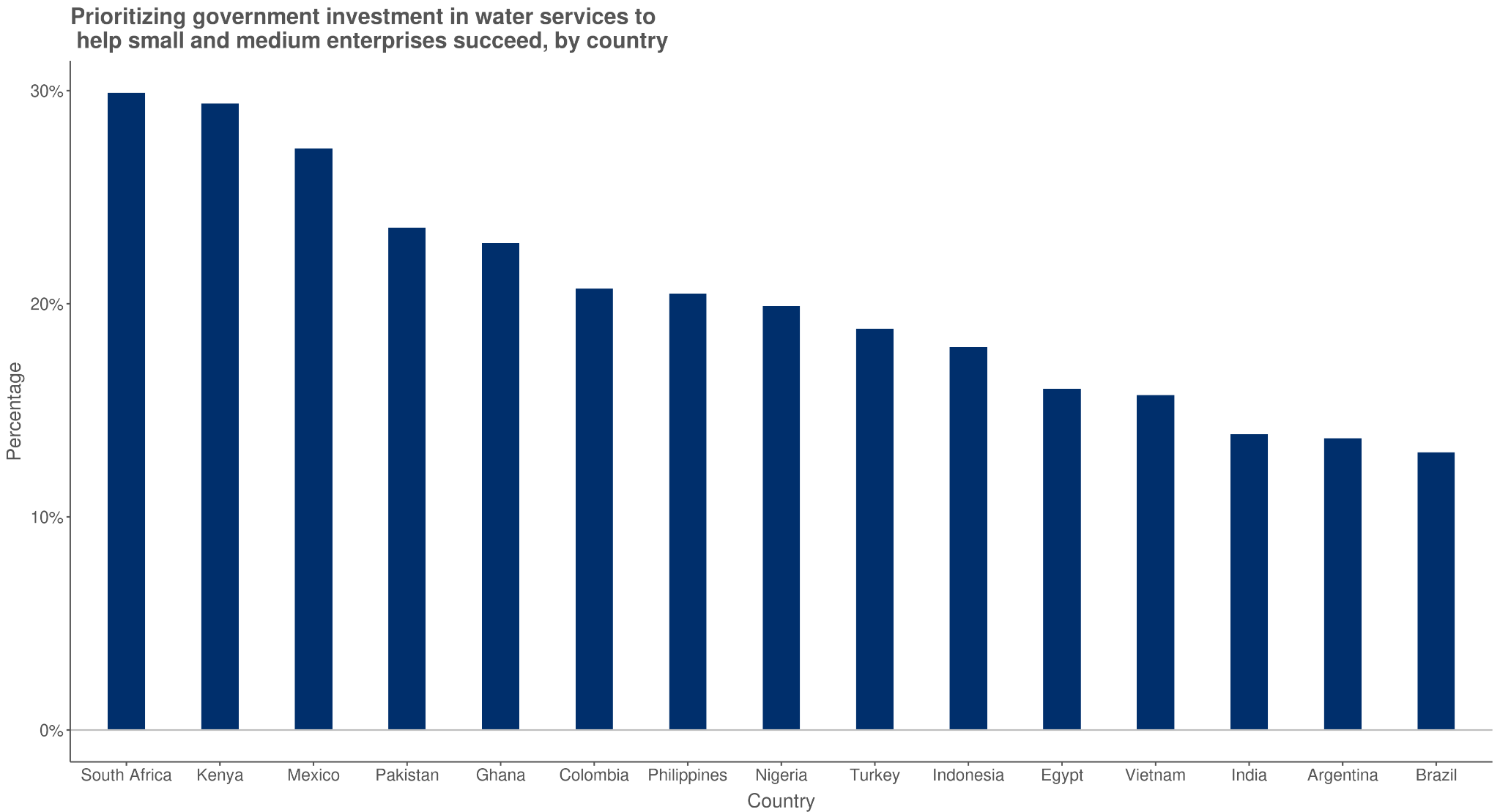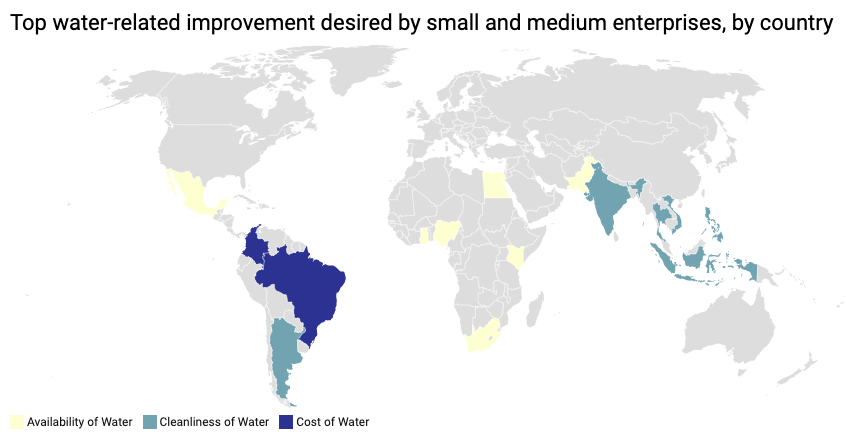Water is essential to economic growth.
The U.S. Global Water Strategy builds on the principle that investing in water security, sanitation and hygiene is essential to eradicate poverty and enable sustained economic growth.
Small businesses are essential to national economic growth.
The secret sauce to many countries’ economies: small and medium businesses! They account for nearly two-thirds of employment and contribute more than one-third of gross domestic product in many countries.
Water is essential for the success of small businesses.
For the first time in late 2021, a quarterly survey of small businesses by Meta’s Data for Good included a module focused on the role of water in small businesses around the world. Survey results from more than 15,000 small businesses in 15 countries revealed the outsized role that water plays in the success of small businesses around the world:
- Across all 15 countries surveyed, the majority of small business leaders reported that access to reliable and clean water was important (or very important) to their business. From brick makers to bakers, one thing is common - access to water is essential to enabling small businesses to thrive and to accelerate economic growth.
The majority of small business leaders report that access to reliable and clean water is important (or very important) to their business.

- Adding to the challenges small businesses have faced as a result of the COVID-19 pandemic, more than one in three small businesses have experienced a water-related challenge. The most common challenge reported was the high cost of water, followed by unreliability and time spent getting water. These water-related challenges pose barriers that can limit recovery from the pandemic and undermine economic progress more broadly.
More than one in three small businesses have experienced a water-related challenge

- One in five small businesses identified water services as a top priority for government investment to help them succeed, alongside other key infrastructure for businesses, such as roads, electricity, banking and internet. Business communities around the world are counting on their governments to help them contribute to broader prosperity by delivering on water services.
One in five small businesses identified water services as a top priority for government investment to help them succeed

- Achieving meaningful progress for small businesses depends on the specific local context. For example, across all countries surveyed, hotels, cafes, and restaurants were more likely to select availability and cost of water as priority areas. The priority challenges to address also tended to vary by region - while businesses in sub-Saharan Africa focused primarily on the reliable availability of water, those in South America and Eastern Asia focused on issues of water quality and cost.

USAID is helping governments empower small businesses
USAID’s Water for the World portfolio works to increase access to safe, affordable, and reliable water and sanitation as a key ingredient for economic growth. USAID’s systems approach supports national and local governments, and the private sector, to deliver the water security that businesses need to thrive. These new survey data further validate the transformative approach USAID takes to accelerating water security. For example, in Indonesia, USAID works in close collaboration with governmental agencies at all levels, donor agencies, the private sector, NGOs, communities, and others to achieve improved and more reliable access to water services across 35 cities, reaching more than 1.6 million people. Throughout the entire portfolio, USAID’s work takes a context specific approach to ensure that investments in water security align with local needs and stakeholder priorities.
Data can drive effective approaches to water security for businesses.
The public dataset from this survey, available here, can now be used by USAID, governments, and their partners to help ensure that investments in water services are data-driven and targeted to address the right challenges for the right industries in the right places, ultimately increasing return on water investments.
By: Brian Banks, WASH Analytics and Data Advisor in USAID’s RFS Center for Water Security, Sanitation and Hygiene
More information on USAID’s approach to water security is available through the Water and Development Technical Series.


